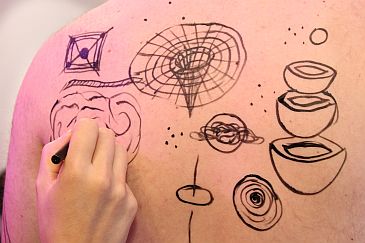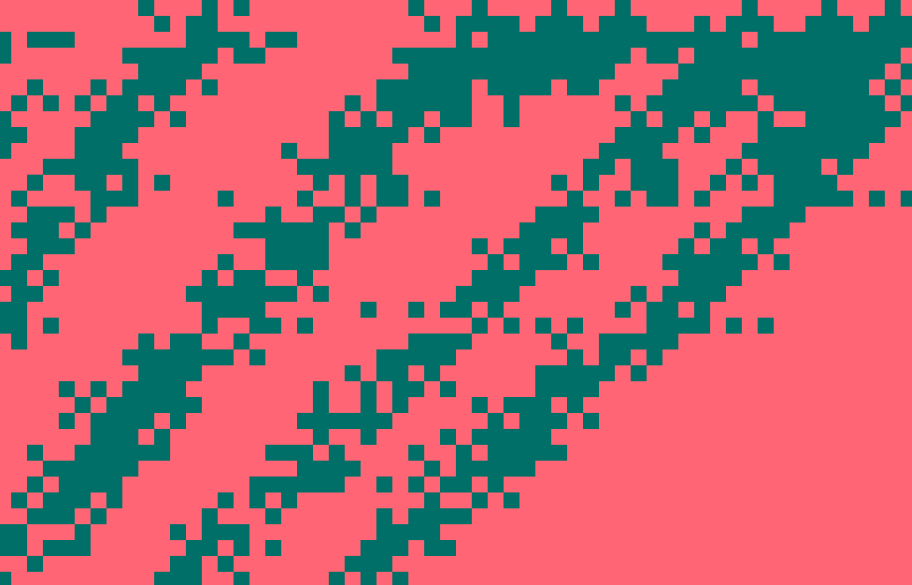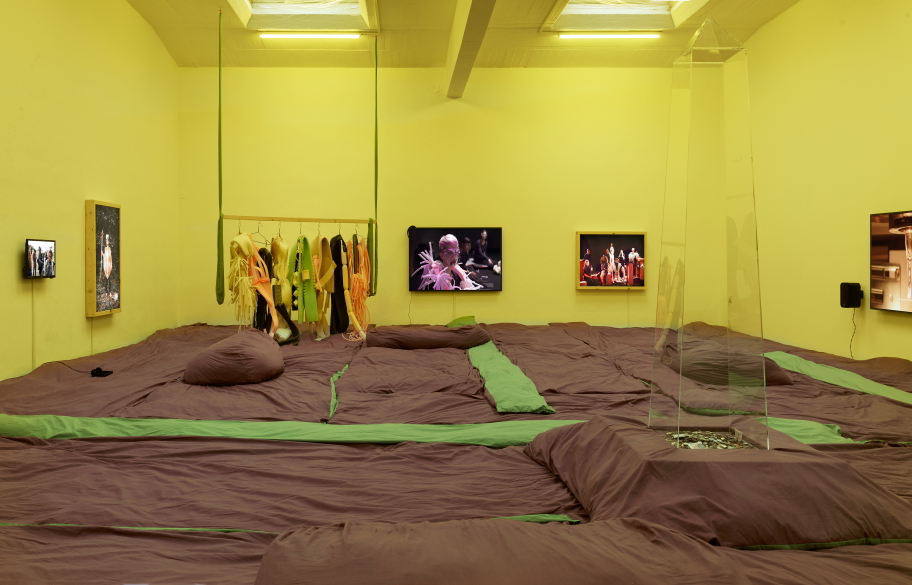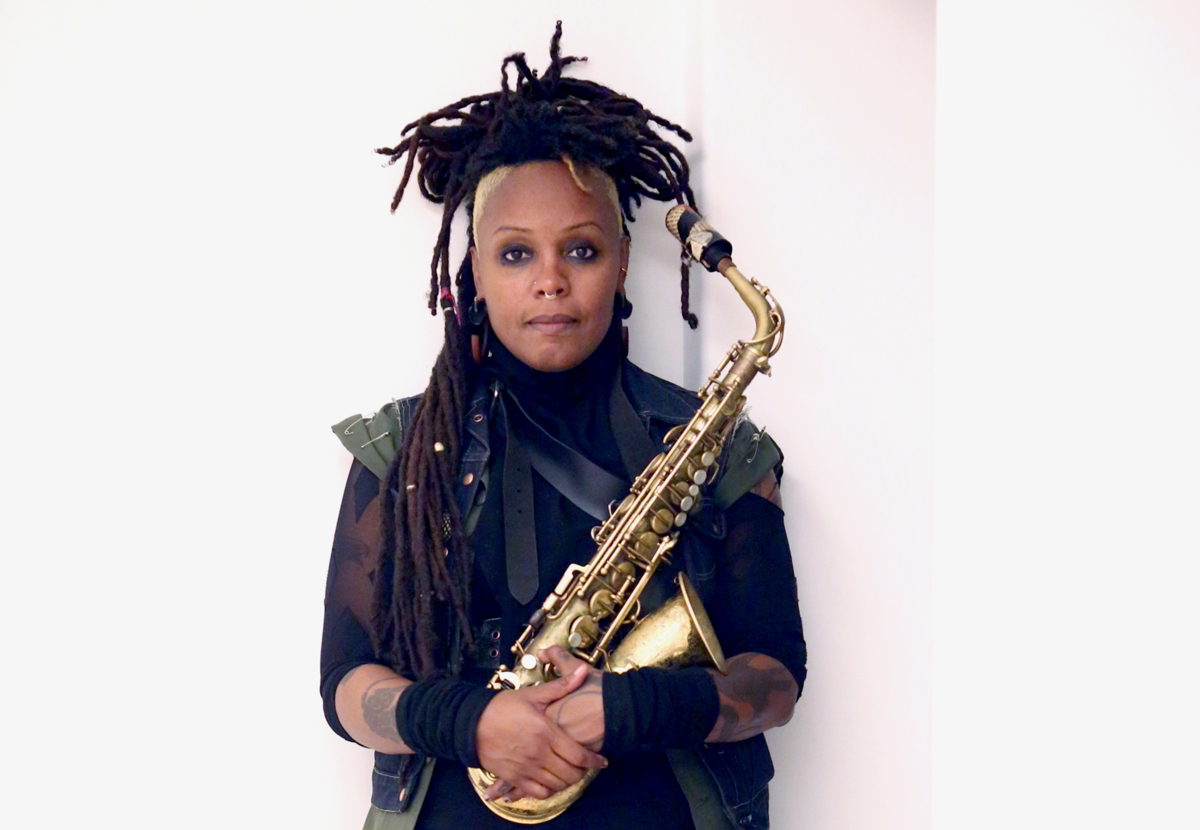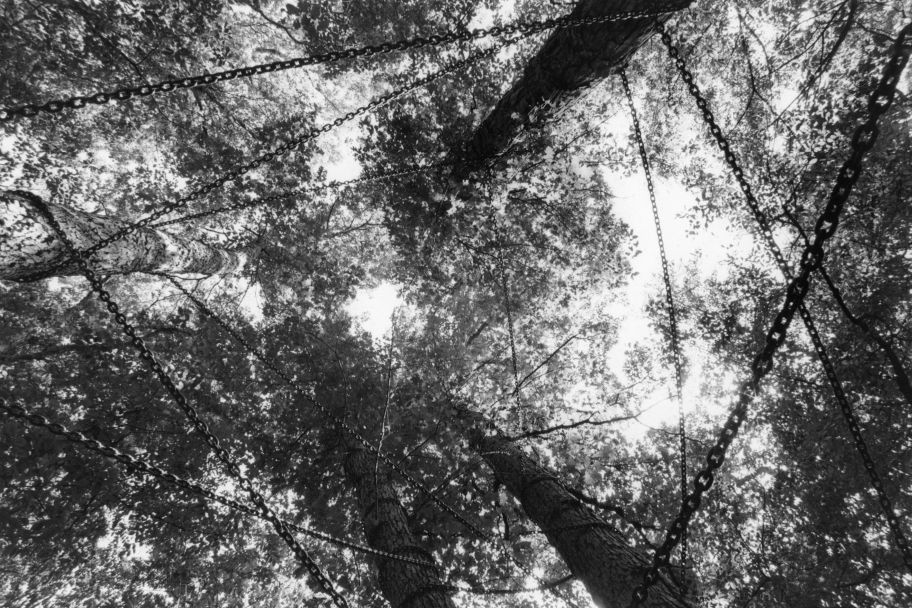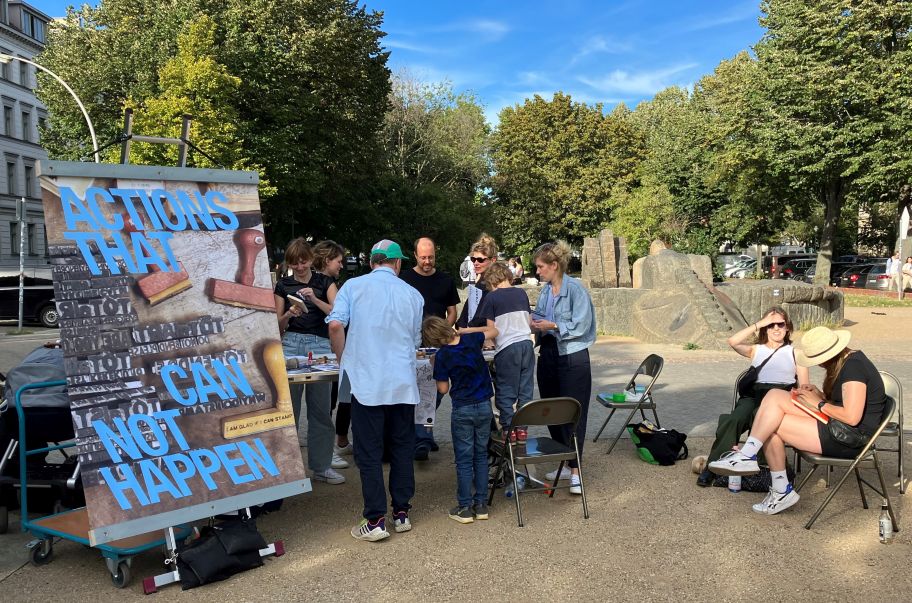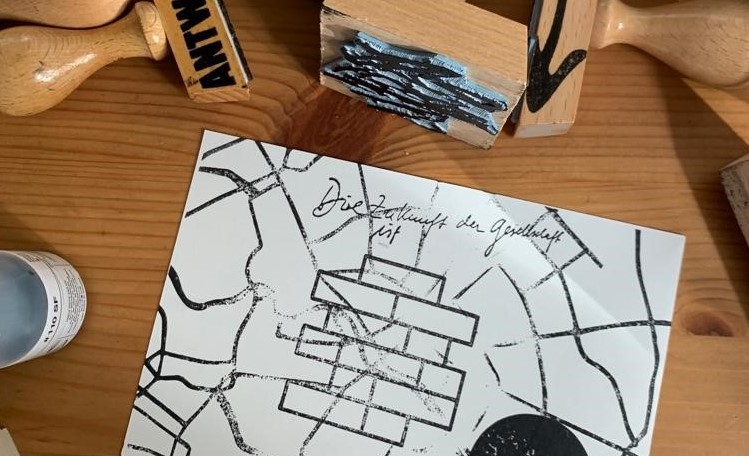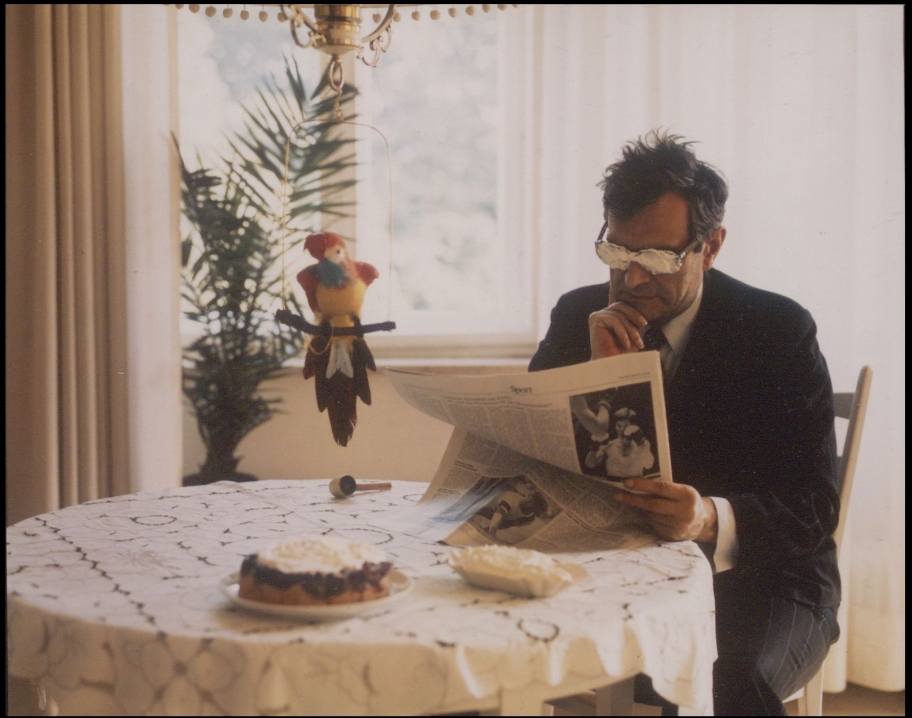Great Britain / Poland, Visual Arts, 2020
Alicja
Rogalska
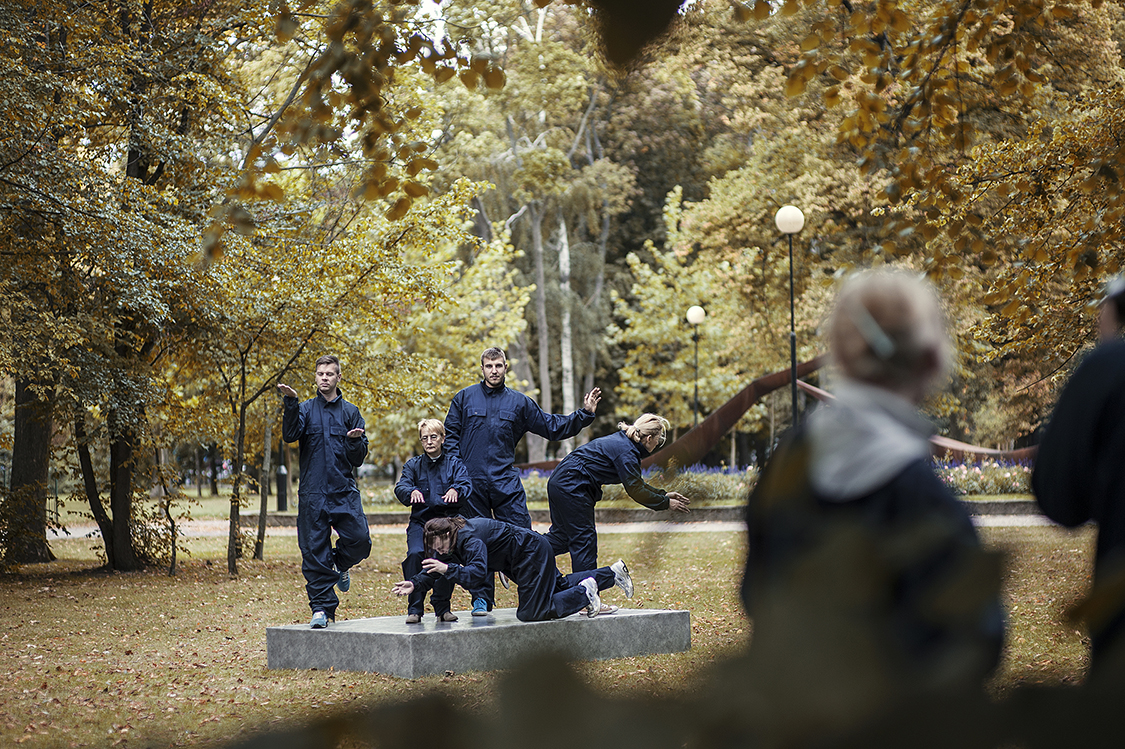
The foundation of Alicja Rogalska’s artistic practice is a shared effort to challenge the logic of capitalism—in contexts ranging from social inequality to migration, gender, the performativity of law, or the climate crisis. To this end, she collaborates with diverse groups of people, including musicians, migrants, lawyers, farmers, activists, and scientists.
Rogalska’s work is rooted in the conceptual. First, she designs a situation with a given set of parameters; then she facilitates a group process, leaving room for improvisation. Her works are often hyperlocal, but touch on universal issues seen from idiosyncratic points of view, often with a distinct sense of humor. She strives to show the wider political context of her collaborators’ actions, along with their strength and their agency—whether they are professionals, manual laborers, or refugees. Her goal is not to speak for people, but to give them a voice, emphasizing moments of solidarity and unity in a system that fundamentally endorses competition.
Raised in a small village in north-east Poland, in a large, multi-generational family of farmers involved in the local cooperative movement, Rogalska first studied Cultural Studies at the University of Warsaw, where she developed an anthropological approach as well as field research and collaborative work skills, before moving to the UK and graduating with an MFA from Goldsmiths in 2011. Her work draws on feminism and experimental learning methods: facilitation, non-violent communication, working with the body, the practices of care and co-education, and non-hierarchical structures. She also employs context-based and embodied, archival, and theoretical research, alongside discussions, meetings, and interviews. Her collaborations with people from beyond the boundaries of the art world lead her to produce and present work in non-art contexts.
Rogalska used Live Action Role Play to collectively write a piece of futurist fiction with feminist and queer activists in Vienna (NOVA); collaborated with former Yugoslav citizens who had been made stateless in Slovenia on costumes that reflected on their experiences of legal non-existence and strategies of resilience (The Aliens Act); worked with local residents to organize future-oriented, speculative guided tours of Warsaw (Pre-enactments); consulted various experts in Japan—AI developers, politicians, academics, and care workers—about the future of labor and care work (Onodera San’s Dream For The Future); engaged migrant agricultural workers on Jersey in a project investigating their labor conditions (The Royals); asked asylum seekers and refugees in London who had trained as lawyers to think of existing and possible legal fictions in immigration law (What If As If); invited activists in Poland to collectively articulate possible scenarios for a future society during a public hypnosis session (Dreamed Revolution); opened a temporary high-street shop for members of the general public to cry together and sell their tears for cash (Tear Dealer); and wrote a new folk song about the socio-economic situation in the post-communist countryside with a folk-singing group (Broniów Song).
The videos Rogalska makes from footage generated by her participatory projects are inspired by the documentary tradition, community filmmaking, and experimental video techniques. She lays the camera’s presence bare, often filming handheld and using close-ups to bridge distances and create a feeling of intimacy.
The emancipatory potential of art, through the building of alternative narratives and images, is a major interest of Alicja Rogalska’s. Her work is driven by hope and fueled by a commitment to change. Whilst her previous projects have exposed the workings of society to reveal social inequalities, she is currently interested in the utopian impulse as a method for analyzing a given situation and imagining how it could be different, especially in the context of the climate catastrophe. Future imaginaries in social art practice is the subject of her ongoing PhD research.
Rogalska recently presented her work at: Kunsthalle Wien (Vienna), OFF Biennale (Budapest), Museum of Modern Art in Warsaw, TABAKALERA (San Sebastian), Art Encounters Biennale (Timișoara), Tokyo Photographic Art Museum, Biennale Warszawa, Kyoto Art Centre, Artsadmin (London), Muzeum Sztuki (Łódź), nGbK (Berlin), Kochi-Muziris Biennale and Ashkal Alwan (Beirut).
Text: Alexandra Jach


